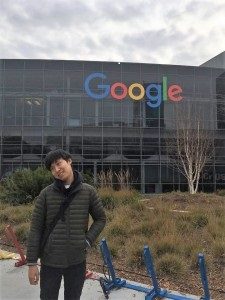National Braille Literacy Month by Inho Seo
Braille helps me become independent.

The first time when I knew about Braille was at a special school for the blind. I became totally blind when I was seven. My parents didn’t know about how to educate me because they hadn’t thought of any disabilities in their life before. I couldn’t go to local school because they also hadn’t taught blind students and hadn’t wanted to teach them, so I had to be staying at home for a year. My parents searched high and low for me, and finally they made me go to special school for the blind when I was eight.
I learned how to read and write using Braille in the first year of my elementary school. I think it was the turning point of my life. I could start to read books, study and learn how to play the piano as non-blind students did thanks to Braille. In addition, Braille gives me help in my daily lives to be independent. For example, I can get help to navigate through Braille on handrail on unfamiliar places.
Braille is the most basic way for the visually impaired to get exact information. Of course, nowadays there may be more useful ways than Braille to get information such as TTS because of developed technologies. Nevertheless, I believe the efficiency can be maximized after you get skilled using Braille. In fact, I prefer hearing screen reader software to get information because it is definitely faster than reading Braille.
So I tried to keep studying using English screen reader software when I came to the United States. However, it was not easy although I had been skilled to use it. I think it was due to my different level of using Braille for Korean and English. I had to be more familiar with English Braille since I couldn’t imagine letters when I heard sentences. Now I can access English Materials with English TTS more easily than the past.
Despite this, it is a problem that there are not enough Braille materials. It’s common that blind people give up their study because of lack of accessible materials even though they really want to study in at least my country. I wish everyone could read and study what they want in the close future.
Written by Inho Seo, South Korea, Global UGRAD 2017-18 at the University of Southern Indiana